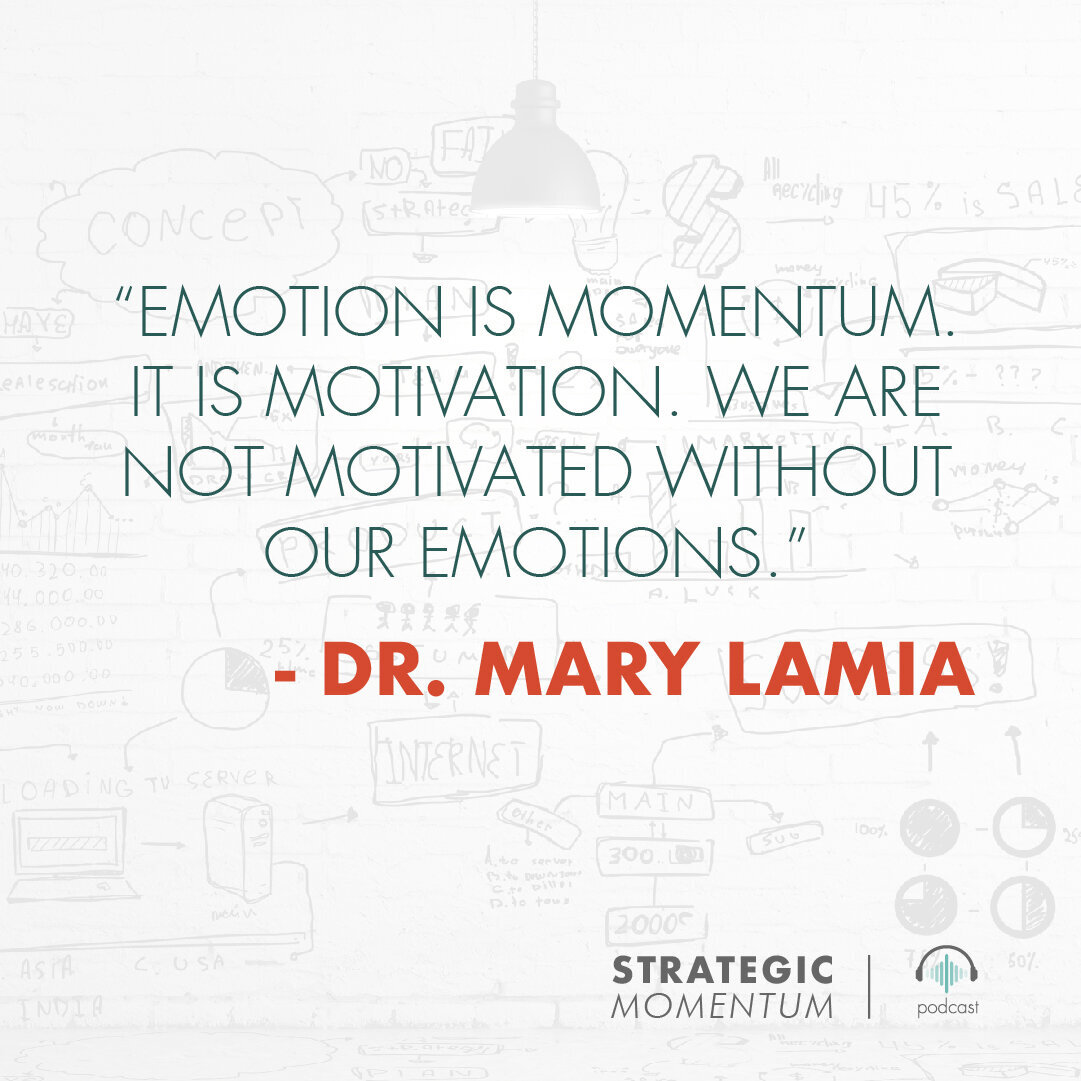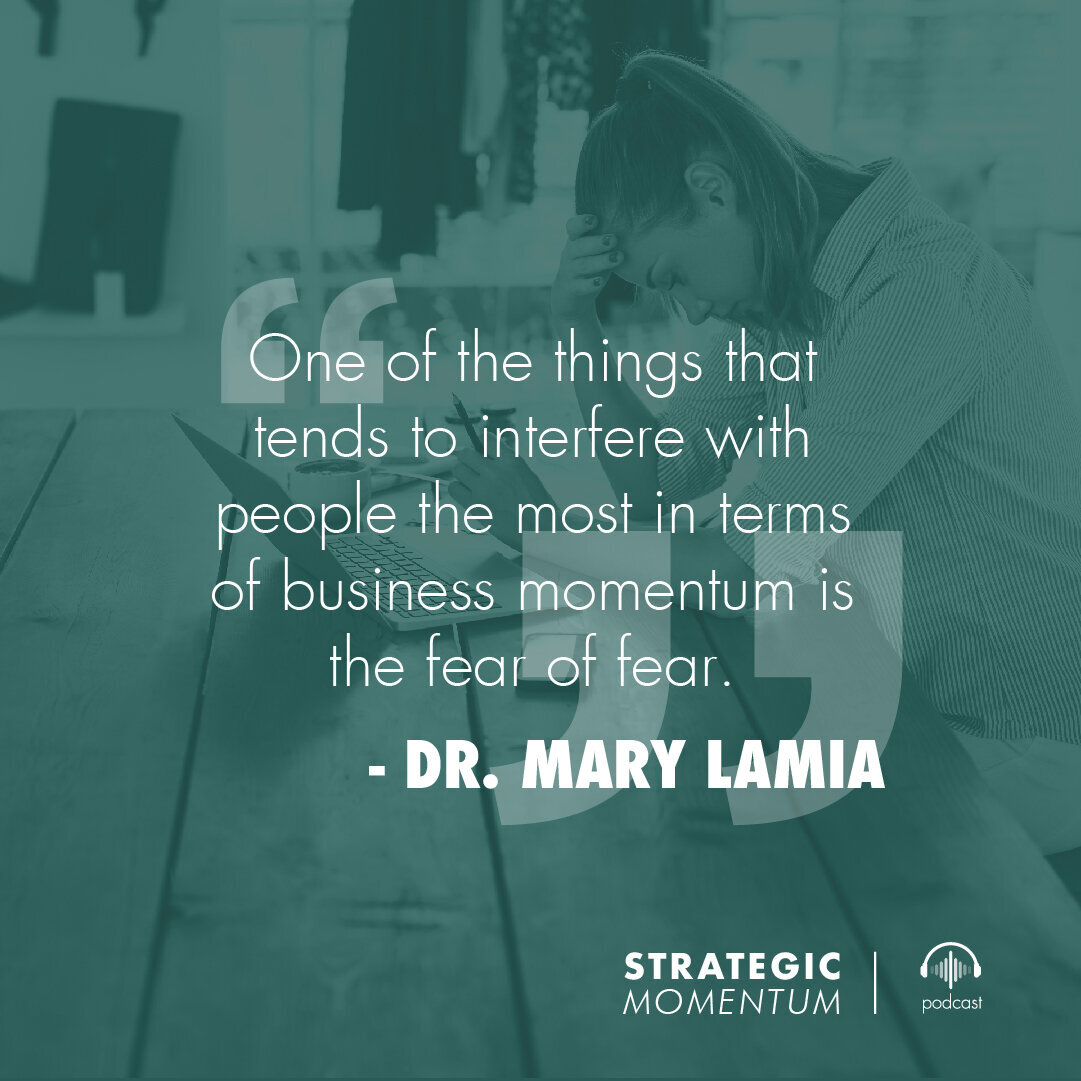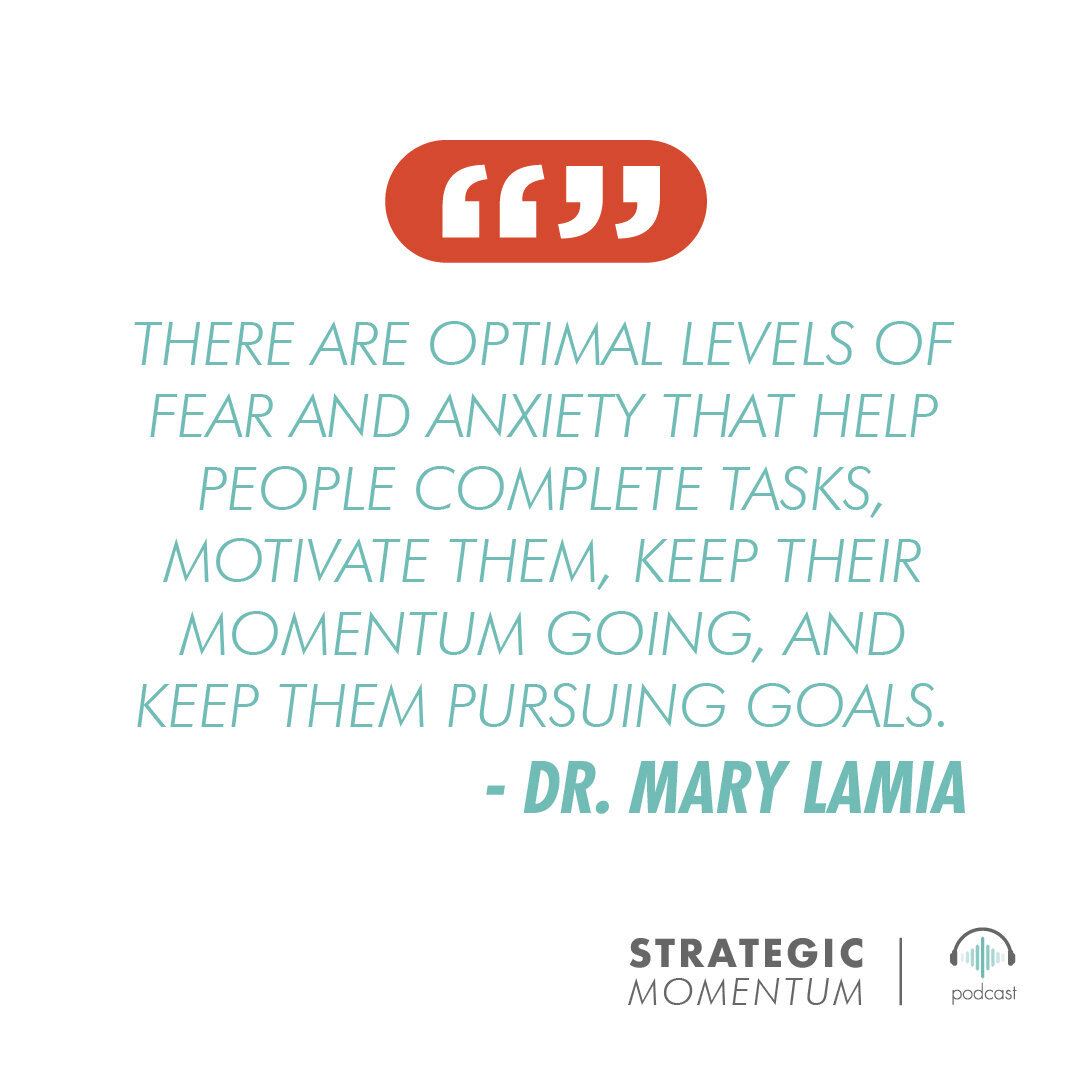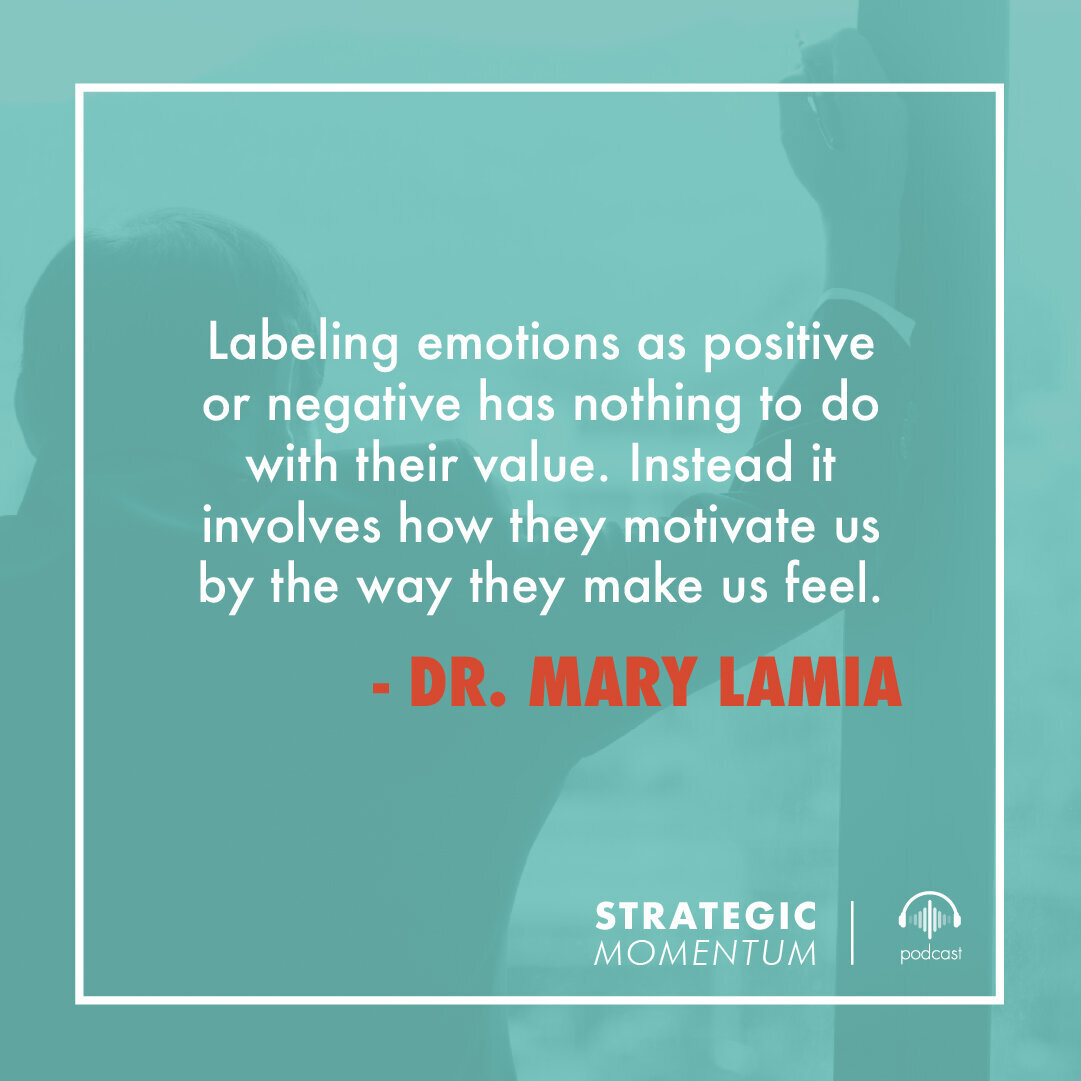Ep. 9 - Emotions are Motivators - Not Just Business Momentum Inhibitors
Find Us Wherever You Listen To Podcasts
Dr. Mary Lamia is a psychologist who has spent her career
studying and encouraging emotional awareness. She is the author of numerous books for kids, teenagers, and adults, including What Motivates Getting Things Done and the upcoming The Upside of Shame.
Negative Emotion ≠ Bad Emotion
Negative emotions are motivators, just as much as positive ones.
A lot of people believe they are motivated by their thoughts – they are completely rational – but emotion is motivation; they are intrinsically linked.
Negative emotions like fear, distress, anger, disgust, and shame motivate us to do something to avoid experiencing them or they urge us to behave in ways that will relieve us of their effects. They're not good or bad or right or wrong or something we should avoid or embrace – they're just motivators.
“Emotions give us the octane to get things done. They fuel our efforts, and yet they don’t always feel good. But that’s how they work.”
A Common Emotional Combination in Business - Fear + Shame = Shame Anxiety
Fear is an emotion that seems to interfere with business momentum for a lot of people. but it doesn’t have to be poison. It’s like a notification trying to get your attention, urging you to behave in a way that will relieve you of that emotion.
In fact, fear can be an incredibly powerful motivator – especially when it is combined with other emotions.
Generally, fear is an immediate reaction to something that threatens our security or safety. However, the fear response can be activated in rapid succession or in oscillation with another emotion. This oscillation, which is a general state of distress that’s longer lasting than fear, is anxiety. One emotion that is frequently found in combination with fear is shame.
When fear and shame commingle to form shame anxiety, it can be especially powerful because it accompanies the thought that you're going to fail. That is a huge source of motivation for a lot of successful people because, as we mentioned before, negative emotions motivate us to do something to avoid experiencing them, or they encourage us to behave in ways to relieve their effect.
There is an optimal level of fear and anxiety that can help any individual keep their momentum going and keep them pursuing goals. However, that level depends on your own emotional memories and awareness – so understanding your emotions will give you a distinct advantage in business.
Key Takeaways:
We need to accept and understand our own emotions in order to learn from them. “Unless we learn to first of all accept that we are experiencing a certain emotion, we will never learn from them … We generally think that the best course of action is to suppress an emotion or ignore an emotion or to get rid of it rather than figure it out. People who can understand their emotions do have an advantage, especially in business”
Understanding your own emotional style will help you in your relationships with others. Other people may have a different kind of motivation based on their emotions, and that can create inertia in a business if no one understands and acknowledges that.
When navigating through interpersonal conflicts and emotional situations, communication (with an emphasis on listening) is key.
Start by accepting the other person for who they are in the moment, which is probably not going to be anything like you.
Invite the other person to express themselves, and then listen. “We are so intent on putting forth what we think that we don't take the time to listen to the other person... and if we can just hold off and let the person reveal him or herself, we get a better sense of what's going on.”
Be aware of the mood of the communication because the tone of the discussion is very important. This enables you to be in contact with the other person at an emotional level, rather than just a cognitive level.
Don’t try to convince somebody of your point of view or evaluate what they're saying in terms of your standards, but instead to measure your own standards against what the other person is saying.
“It's mutual respect and cooperation and trust in the exchange of ideas. And to have behind that the feeling – that is the glue that allows you to listen.”
Resources:
Learn more at MaryLamia.com
Read: What Motivates Getting Things Done: Procrastination, Emotions, and Success
Pre-order: The Upside of Shame: Therapeutic Interventions Using the Positive Aspects of a "Negative" Emotion
Subscribe to the Strategic Momentum podcast:
On Stitcher Radio
On Spotify











